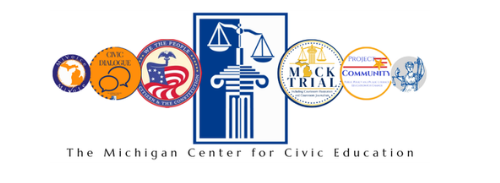Mock Trial Script of Curly Pig vs the Big Bad Wolf
Civics Lessons
B.B. Wolf v. Curly Pig Mock Trial
What is the Role of the President in the American Constitutional System?
This lesson examines sources of presidential power and ways that checks and balances limit presidential power. Students explain the president’s constitutional responsibilities, identify checks on the president’s power, and defend positions involving the exercise of presidential power.
Making Decisions: by Group: The Jury System
Students learn about the nation’s jury system and its importance to the rule of law in the United States. Students will experience the Sixth and Seventh Amendments at work as they engage in the main lesson activities, including one in which they will serve as jurors.
Goldilocks vs. the Three Bears
This scripted mock trial includes ideas for pre and post mock trial activities.
What Makes Lawmakers Tick?
This is the final lesson of three lessons on the Fundamentals of Representative Democracy.
This lesson is designed to give students a better idea of what makes members of Congress and state legislators tick. What motivates them, why do they run, what attributes and skills do they possess, and what is the nature of their jobs? This lesson relies upon a lawmaker being invited and coming to class to answer student questions about legislative life.
The Tired King
Students learn about the three functions of government in this interactive role play.
Krabbs v. Plankton Mock Trial
Students learn about the different roles and responsibilities in a court by participating in a mock trial.
Why Do We Have a House and Senate, Anyway?
Students learn why there are two houses of Congress and discover how a bicameral legislature ensures that states have a voice in bills. Together, the class creates a school cell phone policy and experiments with different voting groups that demonstrate why the bicameral compromise was necessary. Students also examine how things might be different today if there were just a House or a Senate.
Connecting the Separate Powers
In this lesson, students will gain an understanding of the separation of powers using role playing and discussion. Students will identify which parts of the Constitution provide for the branches of our government, and will categorize public officials into one of these three branches.
The Problem of SpongeBob RoundPants
This short scripted mock trial for grades 4-6 involves SpongeBob suing Abercrombie and Fish for pants that don’t fit. Scripted parts allow the trial to move quickly to jury deliberations during which the student jurors actually decide the verdict of the case.

